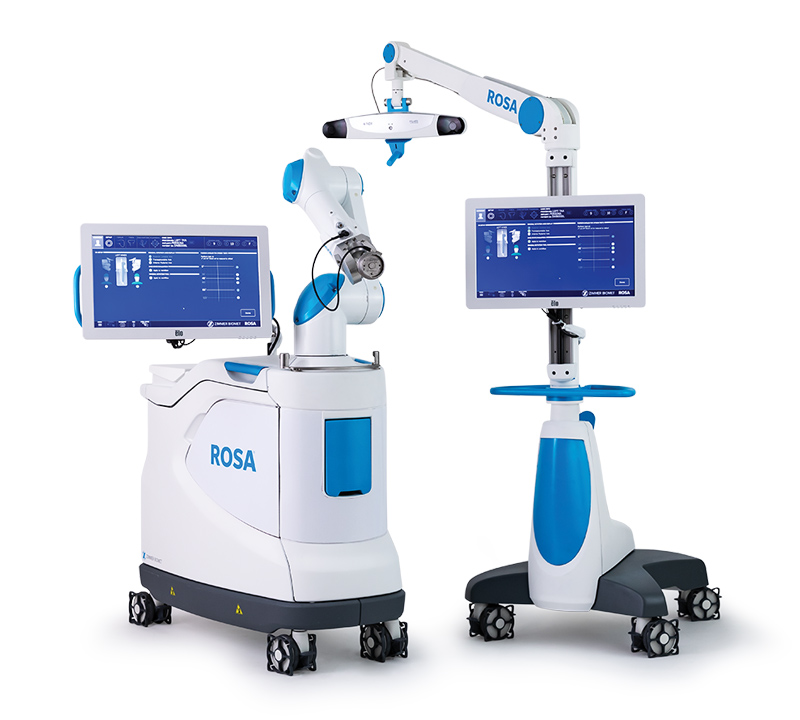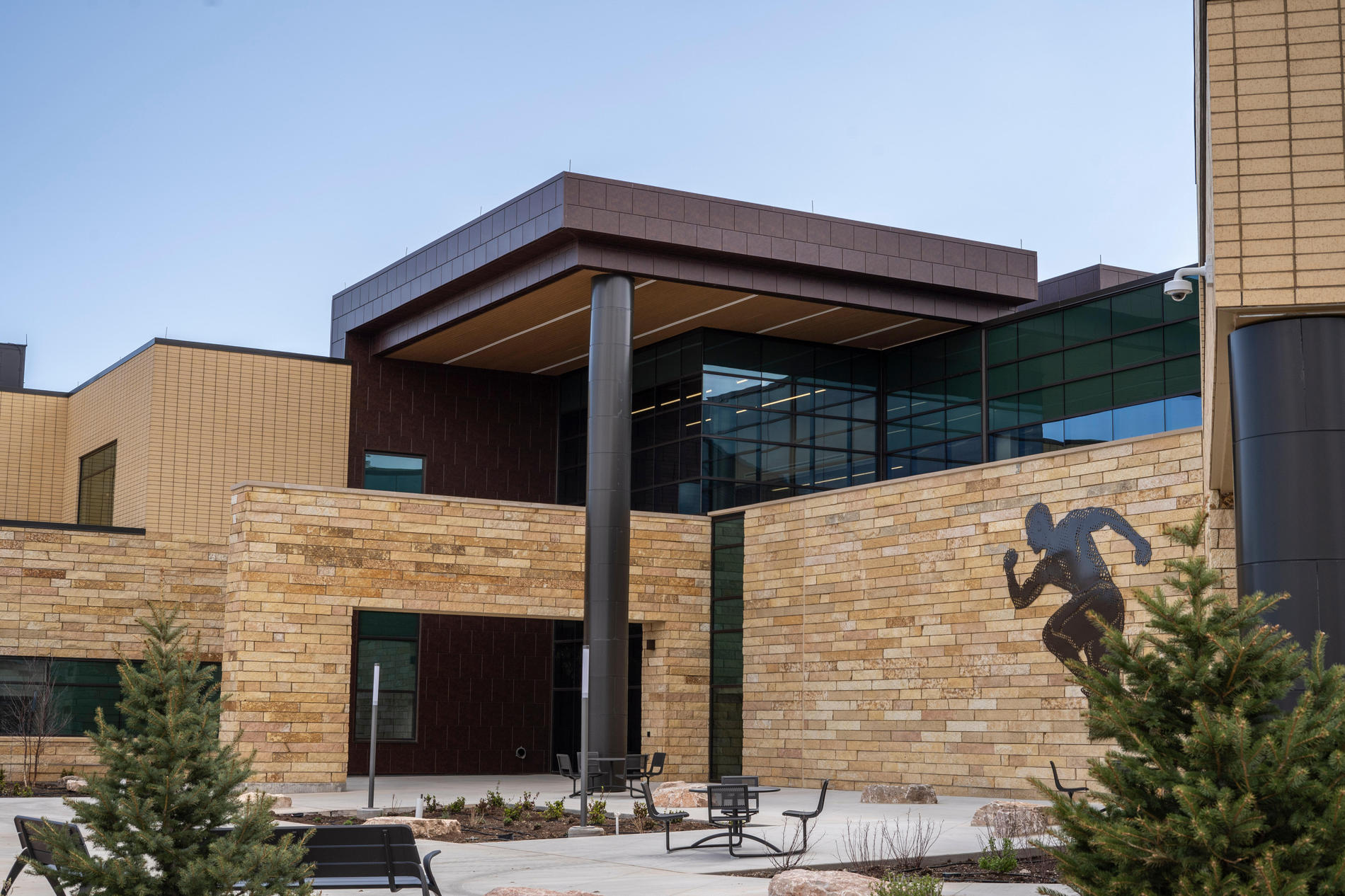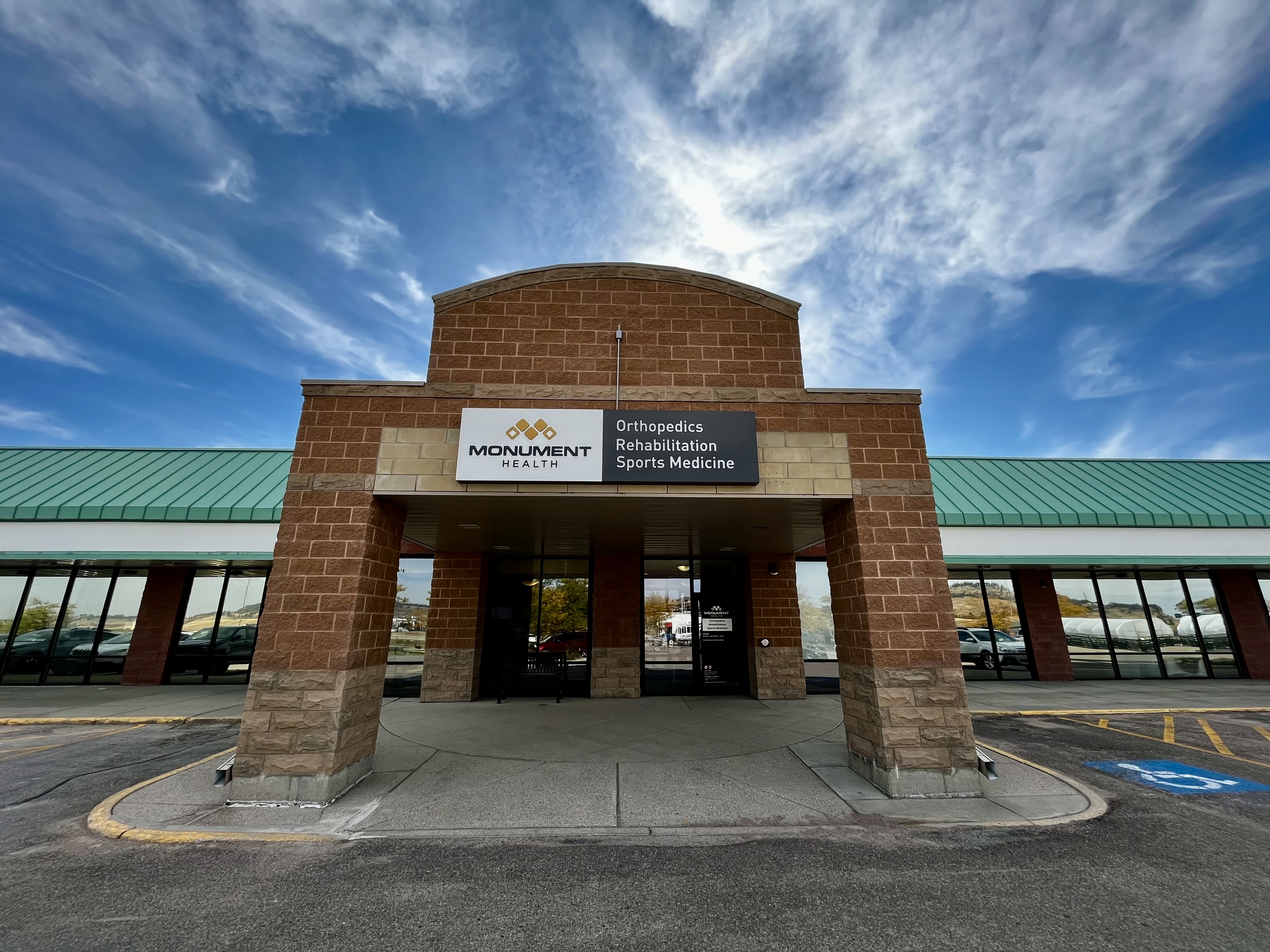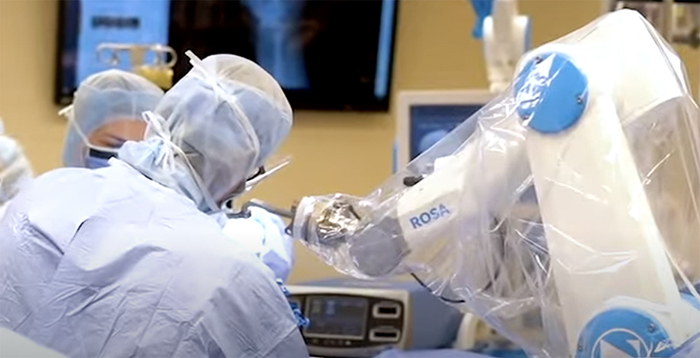
ROSA® Knee Robotic Technology
You’re unique, and so is your individual anatomy. ROSA®, which stands for Robotic Surgical Assistant, is designed to help your specially trained surgeon tailor the placement of your knee implant just for you.
Getting a precise knee implant fit is important to your comfort and overall experience following knee replacement surgery. ROSA® Knee uses data collected before and during surgery to inform your surgeon of many details related to your unique anatomy that may affect your implant fit. By using this data to make more informed decisions, your surgeon is able to plan for and carry out a personalized surgery based upon your individual needs.
ARTHRITIS IN THE KNEE JOINT
The knee is a hinge joint formed by the tibia (shinbone), femur (thighbone) and patella (kneecap). The ends of the bones in the knee joint are covered with cartilage, a tough, lubricating tissue that helps cushion the bones during movement.
Osteoarthritis, the most common form of arthritis, is a wear-and-tear condition that destroys joint cartilage and bone. It typically develops after years of constant motion and pressure in the joints. As the cartilage continues to wear away, the joint becomes increasingly painful and difficult to move. If conservative treatment options fail to provide relief, your surgeon may recommend total knee replacement using ROSA® Knee robotic technology.
BEFORE SURGERY
Your preoperative experience will be like that of most total knee patients. But, unlike traditional knee replacement methods, with ROSA® Knee, a series of x-rays may be used to create a three-dimensional (3D) model of your knee anatomy. This 3D model will enable the surgeon to plan many specifics of your knee replacement prior to your surgery.
DURING SURGERY
The surgical procedure using ROSA® Knee is similar to traditional total knee replacement, but with a robotic assistant. Your surgeon has been specially trained to use ROSA® Knee in order to personalize the surgical approach for your unique anatomy. It’s important to understand that the robot does not operate on its own. That means it does not move unless your surgeon prompts it to. Your surgeon will make intraoperative decisions based on data points and stress range of motion to position your implant in the optimal position. ROSA® then positions the cutting guides to allow the surgeon to make precise cuts for optimal placement of your implant. Your surgeon is still in the operating room the entire time and is making all of the decisions throughout your surgery.
During your procedure, ROSA® Knee utilizes a camera and optical trackers attached to your leg to know exactly where your knee is in space. Think of it like a very detailed global positioning system (GPS) that you might use in your car. If your leg moves even a fraction of an inch, the robot can tell and adjusts accordingly. This helps ensure that the plan your surgeon put into place is executed as intended. Throughout your surgery, ROSA® Knee provides your surgeon with data about your knee. This information, combined with your surgeon’s skill, helps them know how to position your implant based on your unique anatomy.
AFTER SURGERY
Following surgery, you will be hospitalized based upon the recovery plan your surgeon decides is best for you. This hospitalization may range from one to three days. Recovery time varies, but most people should be able to drive after two weeks, garden after three to four weeks and golf after six to eight weeks. Your surgeon will tell you when and what activities you can return to, and what activities to avoid.

Monument Health Orthopedic & Specialty Hospital – Rapid City
1635 Caregiver Circle, Rapid City, SD 57702
Location Details
Monument Health Orthopedics and Sports Medicine – Spearfish
2479 East Colorado Boulevard, Spearfish, SD 57783
Location Details


